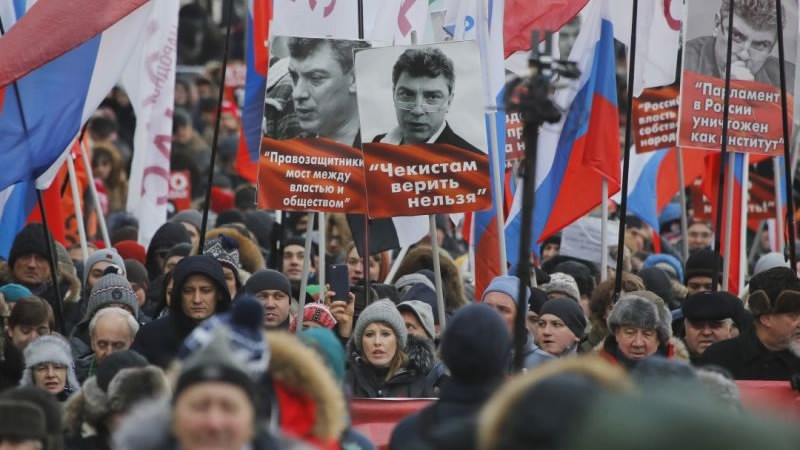Thousands of people marched down a central Moscow boulevard on Sunday in memory of Russian opposition leader Boris Nemtsov, who was gunned down on a bridge near the Kremlin in 2015.
Demonstrators at the front of Sunday's anniversary event carried a banner reading: "These bullets are in all of us."
Two candidates in Russia's presidential election next month, Ksenia Sobchak and Grigory Yavlinsky, participated in the march.
The murder and the murderers
Nemtsov was a fierce critic of Russian President Vladimir Putin, whose press secretary told Russia Today (RT) that the murder had “all [the] signs of a contract murder and is extremely provocative.”
In July 2017, five individuals were sentenced to between 11 and 20 years in prison for the murder. Zaur Dadayev, convicted of carrying out the shooting, was given 20 years.
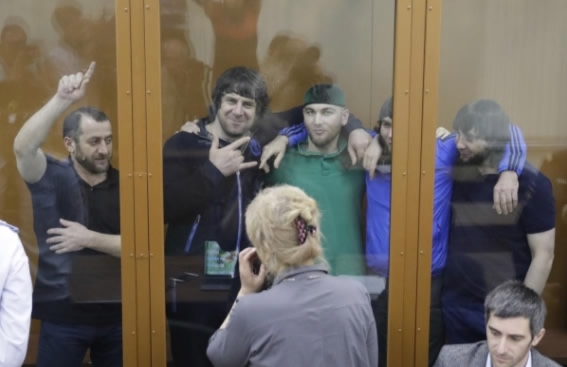
(L-R) Khamzat Bakhayev, Temirlan Eskerkhanov, Shadid Gubashev, Anzor and Shadid Gubashev and Zaur Dadayev, convicted of involvement in the killing of Russian opposition leader Boris Nemtsov, react inside the defendants’ cage during a hearing at the Moscow military district court, Russia, July 12, 2017. /Reuters Photo
(L-R) Khamzat Bakhayev, Temirlan Eskerkhanov, Shadid Gubashev, Anzor and Shadid Gubashev and Zaur Dadayev, convicted of involvement in the killing of Russian opposition leader Boris Nemtsov, react inside the defendants’ cage during a hearing at the Moscow military district court, Russia, July 12, 2017. /Reuters Photo
Yeltsin: ‘He is about as big as me’
Nemtsov, who was 55 when he was shot four times on Bolshoy Moskvoretsky Bridge on February 27, 2015, was deputy prime minister under former President Boris Yeltsin, co-chairman of the Parnas party and a lawmaker from the Yaroslavl regional legislature.
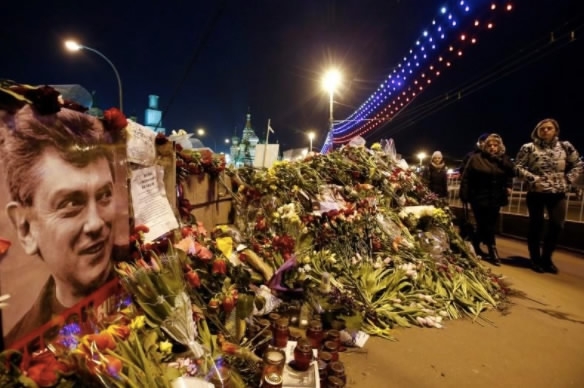
People walk past flowers at the site where Russian politician Boris Nemtsov was killed, on Bolshoy Moskvoretsky Bridge in central Moscow, March 9, 2015. /Reuters Photo
People walk past flowers at the site where Russian politician Boris Nemtsov was killed, on Bolshoy Moskvoretsky Bridge in central Moscow, March 9, 2015. /Reuters Photo
He was in Russian politics for over two decades and gained popularity as a governor in the Nizhny Novgorod region, staying in office from 1991 to 1997.
Nemtsov was regarded at one point as Yeltsin’s successor.
According to the Washington Post, Yeltsin once introduced Nemtsov to then US President Bill Clinton with the line “Keep an eye on him. This young man is as good as me, and he is about as big as me, and he’ll be the president of Russia.”
During this period, Russia was consumed with public debate over whether the country should maintain a powerful Kremlin, or create a strong parliamentary system as the best way to enshrine and develop multi-party politics.
Nemtsov was a firm supporter of the first system, arguing that “those who insist on transforming Russia into a parliamentary republic are consciously or unconsciously pushing the country towards chaos,” the UK’s Guardian newspaper reported.
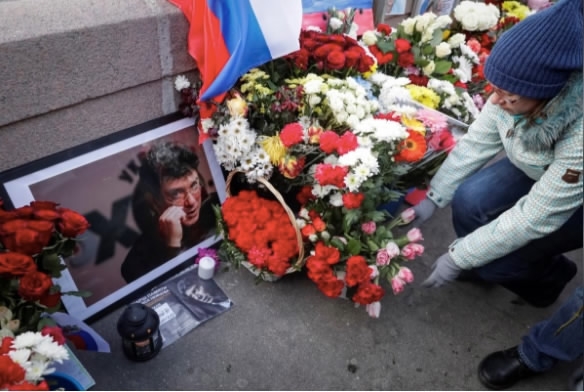
A woman places flowers at the site of the assassination of Kremlin critic Boris Nemtsov after a rally to mark the anniversary of his murder in Moscow, Russia, February 26, 2017. /Reuters Photo
A woman places flowers at the site of the assassination of Kremlin critic Boris Nemtsov after a rally to mark the anniversary of his murder in Moscow, Russia, February 26, 2017. /Reuters Photo
However, while he supported a powerful presidency, Nemtsov also favored a properly functioning Duma. Even in opposition, he continued to have faith in electoral politics and street demonstrations.
A prominent opposition leader
He launched his candidacy for presidency in 2007, but quit the race, saying that “the presidential elections, like the parliamentary ones, will be a farce, because candidates do not have equal opportunities to campaign.”
Since 2012, he had co-chaired the liberal party RPR-PARNAS (Republican Party of Russia – People’s Freedom Party).
Nemtsov was arrested several times for taking part in unauthorized protests against Putin. His imprisonment in December 2010 also brought international attention.
At the time of his death, Nemtsov was planning to lead an anti-government march protesting the Kremlin’s alleged involvement in the Ukraine conflict.
Nemtsov was particularly interested in Ukraine and was an economic adviser to Viktor Yushchenko, who served as president in Kiev from 2005 to 2010. He aimed to improve business co-operation between Ukraine and Russia, but the move clearly went against Putin’s policy.
With Putin widely expected to win a fourth term in the upcoming presidential election, current Russian opposition leader Alexei Navalny has been forbidden from running after being detained by police.
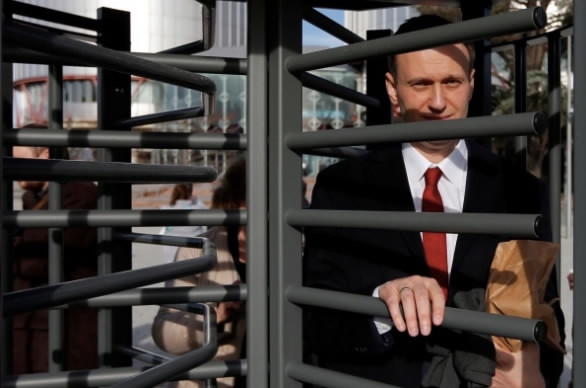
Russian opposition leader Alexei Navalny leaves the European court of Human Rights after a hearing regarding his case against Russia at the court in Strasbourg, France, January 24, 2018. /Reuters Photo
Russian opposition leader Alexei Navalny leaves the European court of Human Rights after a hearing regarding his case against Russia at the court in Strasbourg, France, January 24, 2018. /Reuters Photo
Navalny has organized some of Russia’s biggest protests in recent years against Putin. His detention came ahead of Sunday’s march to remember Nemtsov.
Russia has seen several killings of high-profile politicians and journalists. And the country has been criticized by Western media for a long history of prosecuting alleged hit-men and then failing to discover who ordered the murder or why.
(With inputs from agencies)

